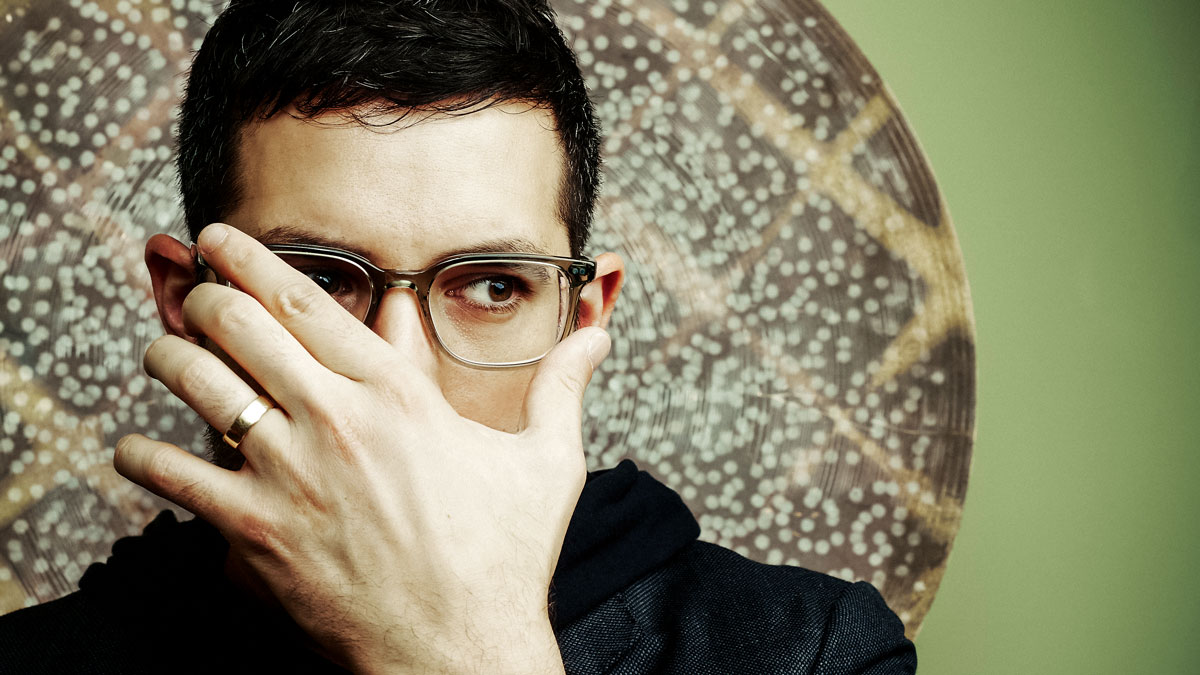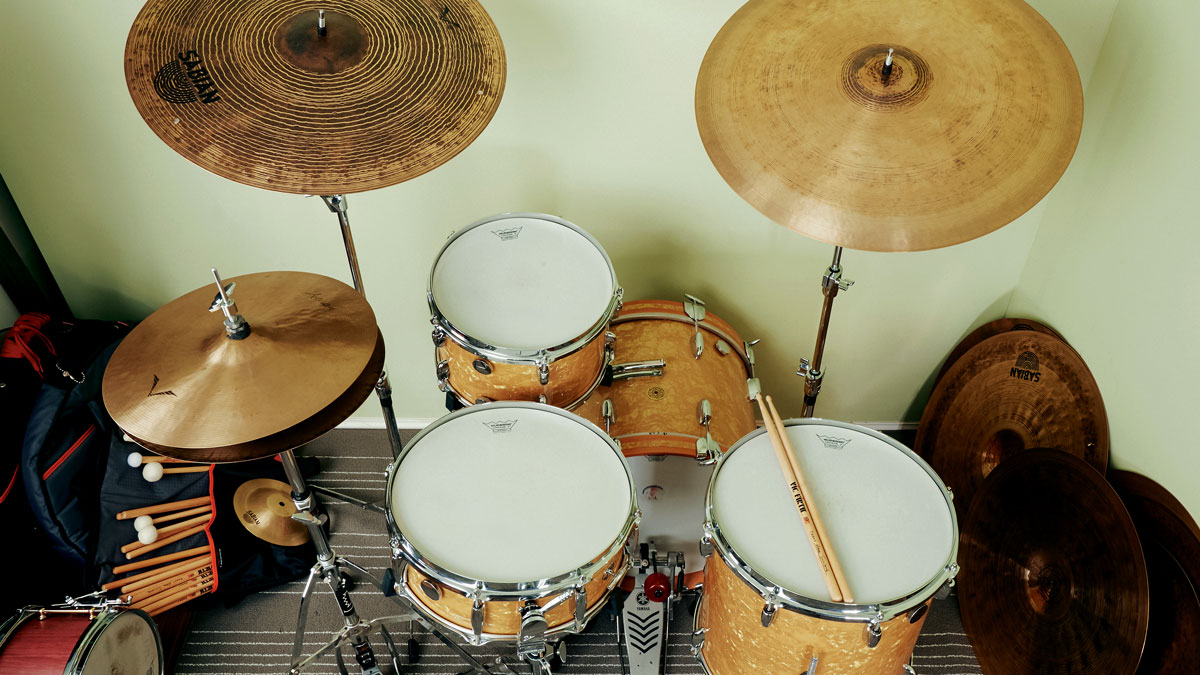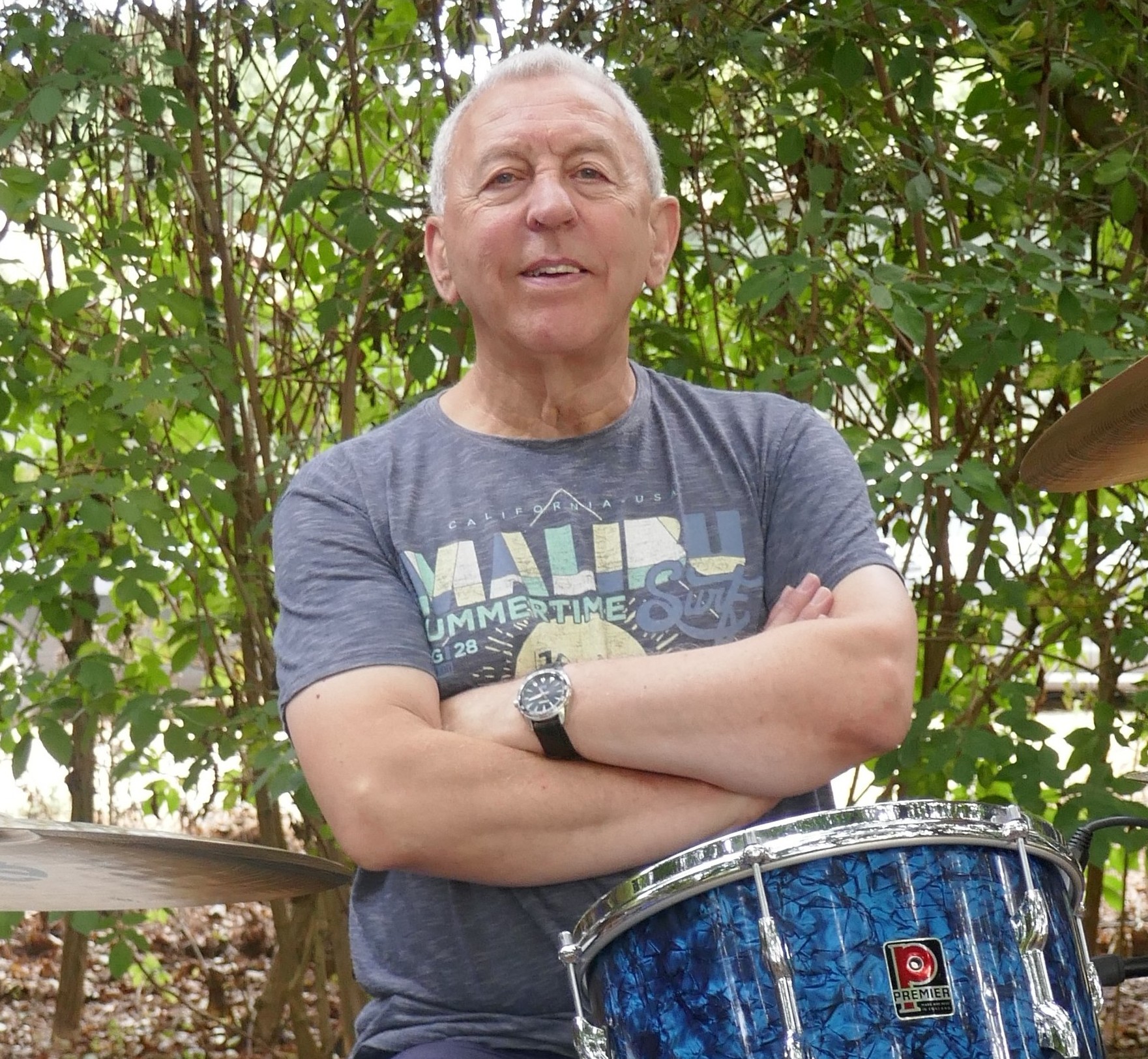Mark Guiliana lifts the lid on David Bowie's final album
Jazz great talks Blackstar

Meeting a master
Mark Guiliana’s breakthrough to wider public awareness came last year with his intimate involvement in David Bowie’s final masterpiece, Blackstar.
The always-canny Bowie came calling on New York’s edgiest, virtuoso musical experimenters, saxophonist Donny McCaslin’s quartet of Jason Lindner (keyboards), Tim Lefebvre (bass) and Guiliana, to be his backing band on Blackstar. (Look out also for the band’s just-released tribute to Bowie, Beyond Now.)
In what became a life-changing experience, Mark found himself the drummer on the fabled UK artist’s final album. As a jazz musician, Mark is used to working quickly, using minimum studio time, but how did this translate to working with a major popular star? How much time did mark spend with David and what was a typical day?
“I had done one track with David the year prior, in 2014. He collaborated with Maria Schneider’s band on the song Sue (Or In A Season of Crime) that came out on Nothing Has Changed (2014).
“We did that one tune and that led to [the album]. I guess you know the back-story, but David had heard the record we did with [saxophonist] Donny McCaslin, Casting For Gravity (2012). So he invited the whole band to record. It was January, February and March 2015 and we did about one week a month, so it was spread out. A typical day when David would be there was 11am to 4pm. I would get there a bit early to warm up and sometimes stay a little later to tweak some stuff.”
I hope you can hear the energy and exchange of ideas in the moment and that is what led to the specific performances that are on the record.
What has caused such a stir is the inspired manner in which Bowie was somehow able to unleash these leading-edge musicians without diluting their creativity and improvisational skills. The result is that the album has properly complex, meaty sax solos and serious interplay with the rhythm section. Bowie had ranged from extreme commerciality to dark obscurity before in his amazing career, but this is a decidedly grown-up album, Bowie’s yearning, heart-rending and cryptic songs floating over a shifting backing which has a really live feel to it, an improvised jazz vibe.
“I am glad you can hear that,” Mark enthuses. “Because on every song we were playing together the entire time, and every song is a full take. And David sang with us on every take and he wasn’t in a booth. The room’s pretty small to begin with and so my drums are leaking into his vocal mic and if he is singing loud enough it is getting into my overheads. So it was an amazing, unique experience and the fact he sang with us on every take, there is no way we could have had those takes and performances without him being with us. I hope you can hear the energy and exchange of ideas in the moment and that is what led to the specific performances that are on the record.”
Right from the title track, Blackstar, Mark delivers an astonishing performance that has turned many heads. Did he ever think, ‘I had better tone this down?’ “Exactly the opposite, he really made a point to push us. He [first] heard us in our most comfortable environment, at the 55 Bar in New York [Greenwich Village, June 2014]. We didn’t know he was there and we were doing our usual thing where we freak out, going for it. So he heard that and he would reference that from time to time. I’m paraphrasing, but he would say, ‘Mark, I know what you are capable of, don’t hold out on me!’”

Beat Music to Bowie
Mark was rightly chuffed and slightly amazed to find Bowie had taken the time to listen to his self-produced and self-released album, Beat Music (2013).
“Yes, which was crazy to imagine.He referenced stuff we had done previously, he even singled out some of the Beat Music stuff. He would say, and again I’m paraphrasing, ‘Mark, I love where you go with some of the Beat Music stuff, if you think any of this could go there, feel free.’
“The songs all had demos that he [David] would make at home and send to us, so often on the first take we are doing kind-of what we heard on the demo and making sure we are paying tribute to what is there. But then he would be like, okay, cool, so we got it, we know what it is, now let’s really do it. That idea of okay, let’s push and really find this thing together.”
The communal, co-operative nature of the recording meant mark and the band got to hang out quite a bit with David.
“As you know, there is lots of down-time in the studio, you have to do gear changes and overdubs and so for me, because all the drum stuff was a full-take, every day would start with, ‘Let’s do this song,’ and we would go in and play as a band, and then in order to start doing the overdubs – Jason and Donny on keyboards and saxes – we had to decide on a take. And some days it would be the first take, some days the second. The foundation of it is all full takes. We worked pretty quickly.”
All those years of hard graft learning to play minutely accurate time paid off! Difficult beats, full-length takes, first or second passes. Nailed it! Thinking of the title track again, the band is going pretty wild behind David, but he is singing in a calm, slow and measured manner.
“Nothing was an accident,” Mark continues. “All the information was on the demos. For instance, that beat to Blackstar, I had a lot of friends come up and say, wow, that beat is crazy, how did you come up with it? Well that is the beat on the demo that I am trying to play! It is a testament to him and his artistry and musicianship. It was this really nice balance of, here are these songs we need to play, but he was really encouraging us to inject our own ideas and personality. I feel like the whole session we were dancing on that line.”
Again, on Dollar Days the song is more relaxed and tender, but Mark plays a lively syncopated beat beneath it when most drummers would probably opt for a more obvious, cosy half-time ballad backbeat.
“That is actually the one song that did not have a demo,” Mark reveals. “David said, I have this new one, check it out, and he just played it for us on guitar and sang and said okay, let’s try it. So I was exploring in that moment. And everybody was suggesting stuff. James Murphy [LCD Soundsystem], was in the session for about a week helping out with production and I was having trouble, I couldn’t figure out the best way to orchestrate the groove for the verse. And it was his suggestion to maybe use the toms instead of the hi-hat to keep the pulse. And I said, ‘Oh, that’s a good idea,’ and I tried it and, boom, that was it. So it was a very democratic and collaborative environment. Rarely was the safe option the right option.”

Strong statements
It’s terribly poignant now to realise such a dynamic and still relevant artist was in fact already seriously ill by the time of the recordings. Were the band aware?
“We certainly didn’t know the severity. For example, you can hear on the record he is strong as hell. The performances that he is delivering are unbelievable. We were just in there making a record and doing the best we could and the way everything transpired was certainly a shock to us as well. Really sad.”
Umpteen words have been written on how Bowie seemed to orchestrate his own passing the way he had always manipulated the media. He had surprised and delighted us so many times over the decades it’s tempting to imagine that he was thinking, ‘If this is the end then I am gonna sign off in the company of the hippest of young musicians.’ Yet it seems from what Mark is saying that there was no sense of this in the actual sessions. It just felt like the next phase in a long progression.
“I think so because I feel like you could say that about so many records of his. If this is gonna be the last one, let me make this sort of statement. So no, it didn’t feel like [that]. I think I read that [Bowie’s producer] Tony Visconti said it’s not that he knew this was the last, because who knows, he could have had a few more years or beaten the thing. But it was something to the effect of, ‘I don’t know if this is my last one, but just in case it is then I want to make this record.’ I like to think about that, because we could not have known it was the last one and we didn’t as we were making it. But it is a strong statement.”

Geoff Nicholls is a musician, journalist, author and lecturer based in London. He co-wrote, co-presented and played drums on both series of ‘Rockschool’ for BBC2 in the 1980s. Before that he was a member of original bands signed by Decca, RCA, EMI and more. ‘Rockschool’ led to a parallel career writing articles for many publications, from the Guardian to Mojo, but most notably Rhythm magazine, for which he was the longest serving and most diverse contributor.